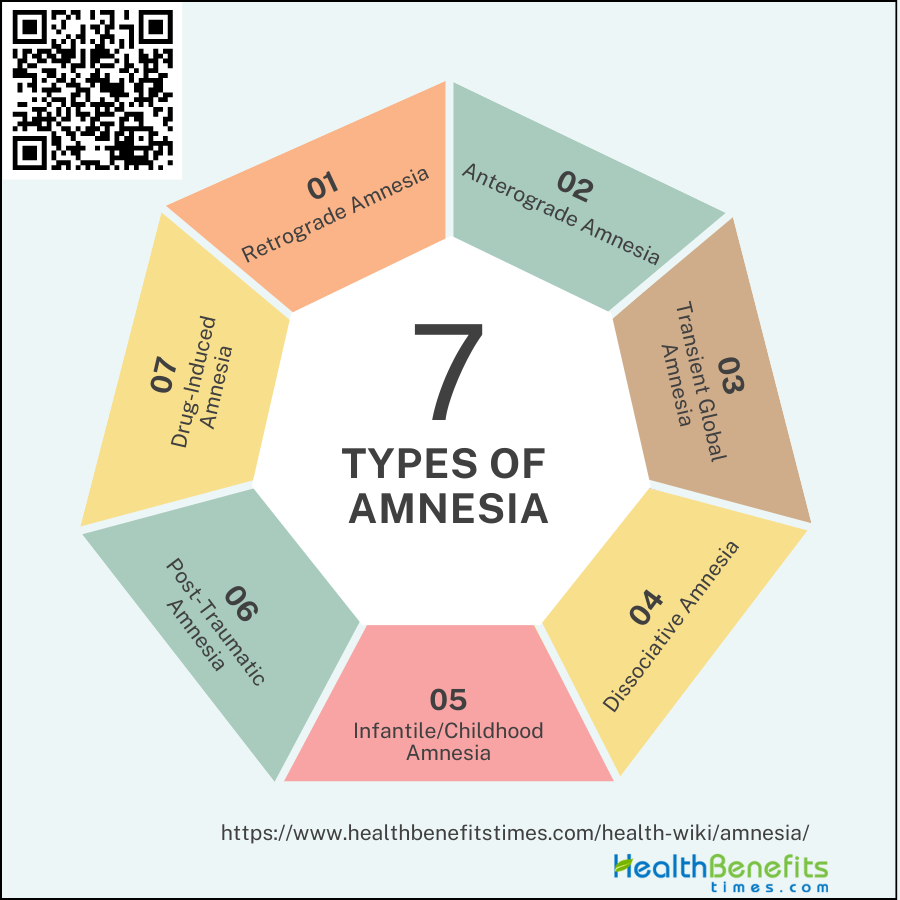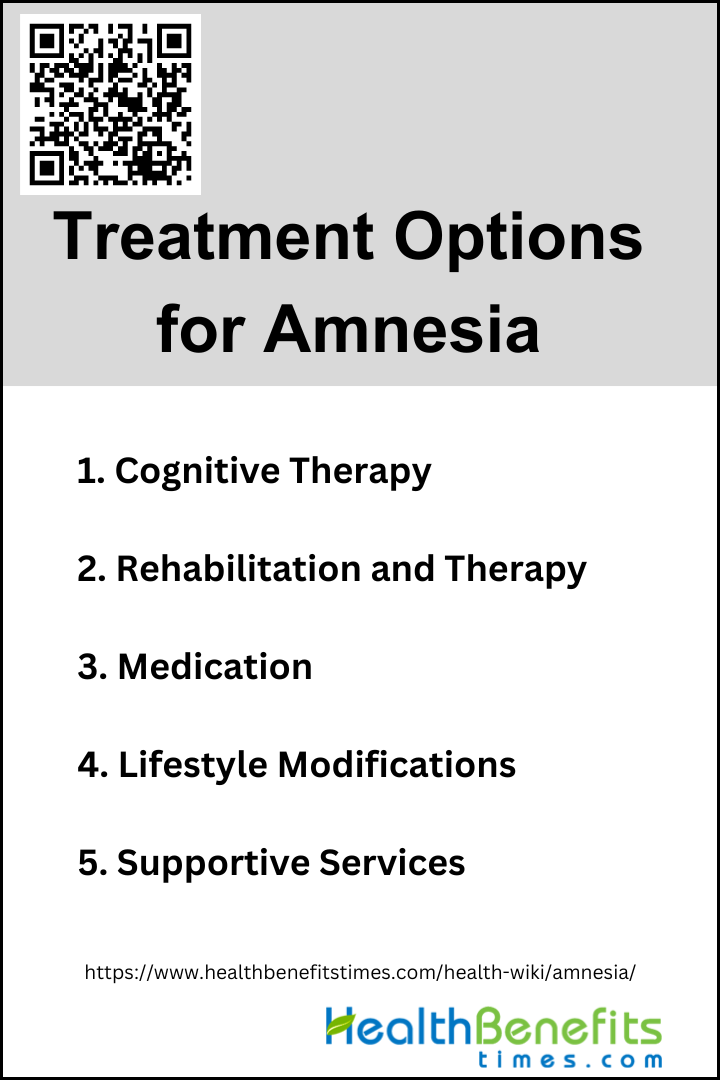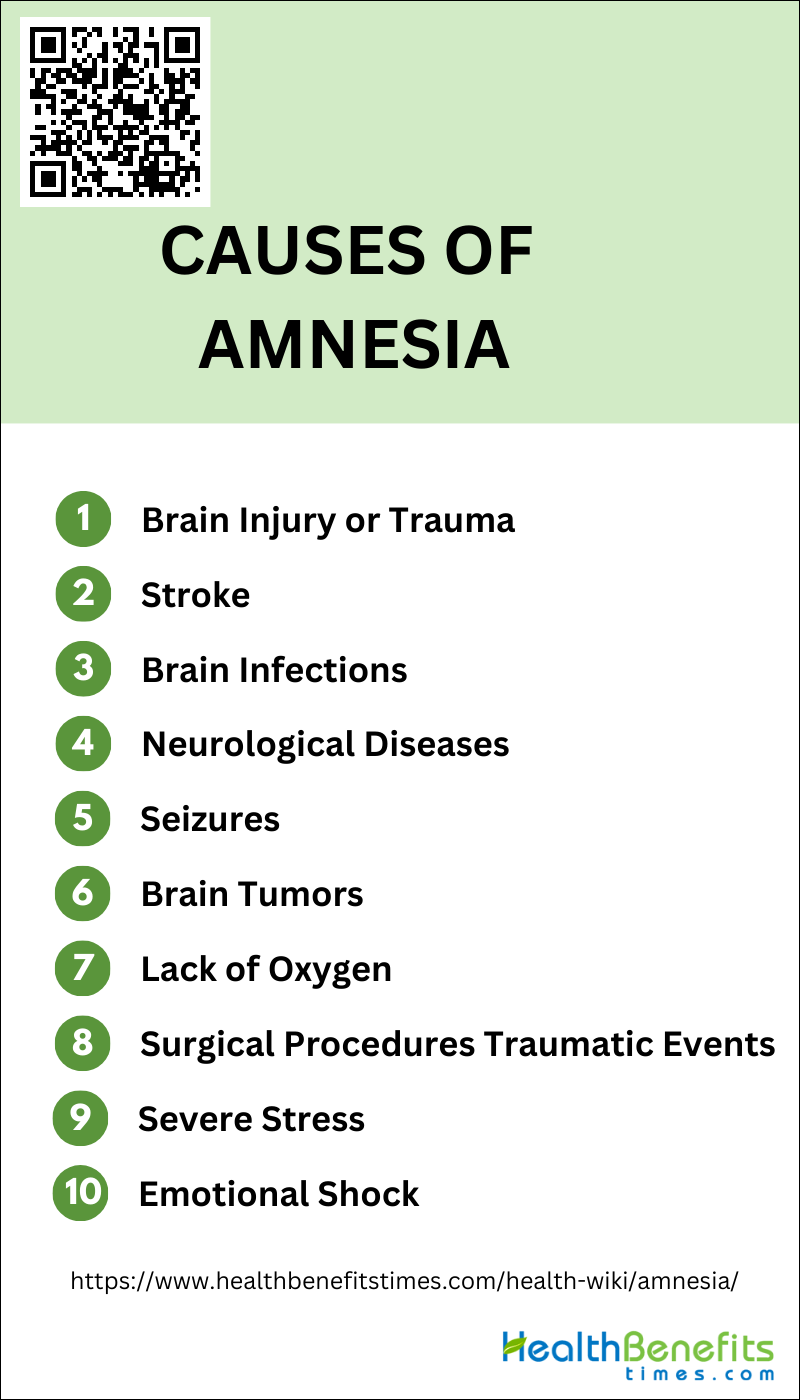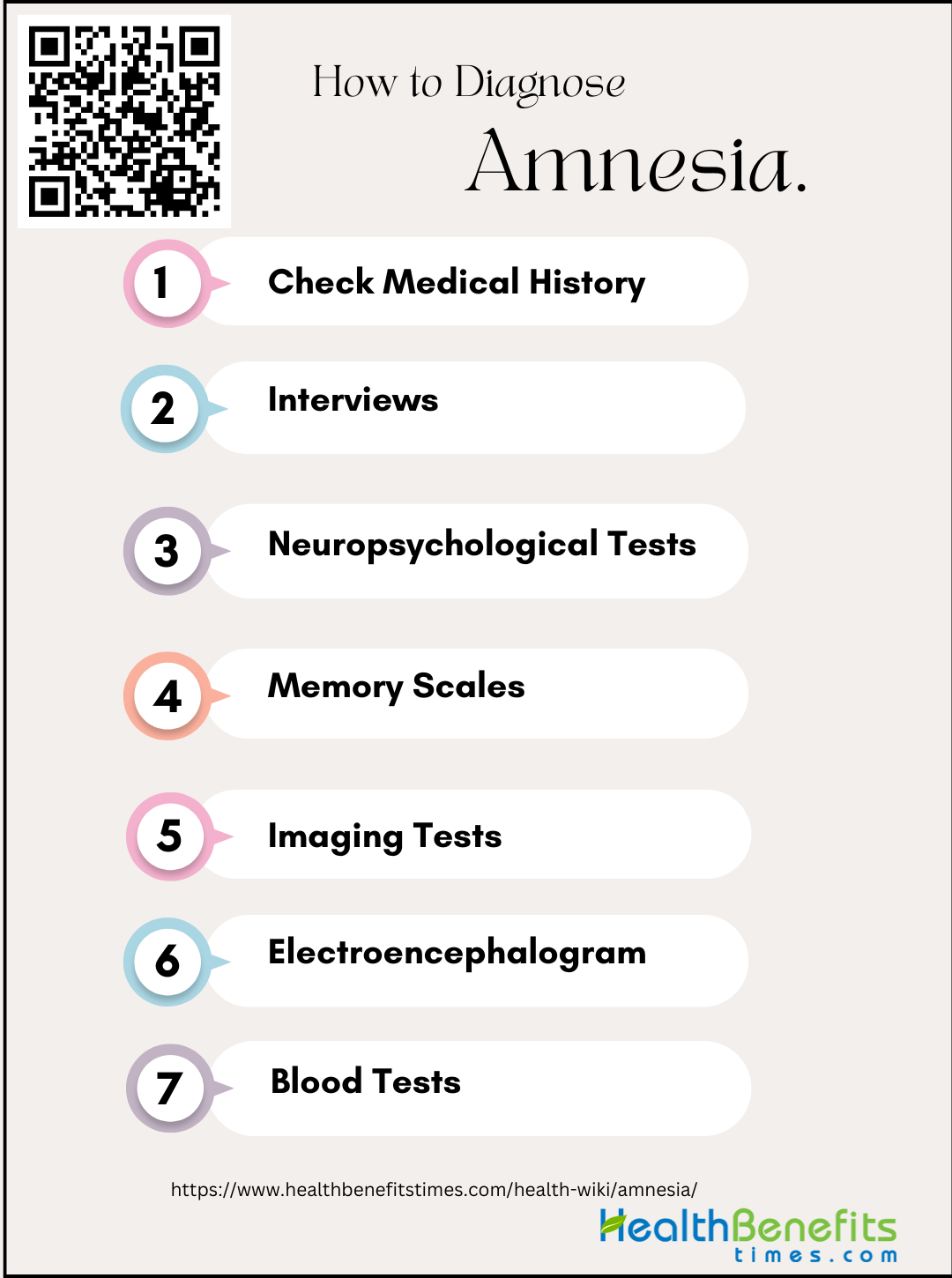Key Highlights
- Amnesia is a condition characterized by memory loss, which can be temporary permanent.
- Transient global amnesia is a rare form of amnesia where a person experiences a sudden and temporary loss of memory.
- Anterogradenesia is when a person cannot form new memories, while retrograde amnesia is the inability to recall past memories.
- Dissociative amnesia is caused by psychological trauma and involves forgetting specific events or periods of time.
- The underlying causes of amnesia can include brain damage, medical conditions, and emotional shock or stress.
- Diagnosis of amnesia involves a detailed medical history, physical exams, and various tests such as blood tests and brain imaging.
- Treatment for amnesia depends on the underlying cause and may involve cognitive therapy, medication, or addressing the specific medical conditions.
Amnesia is a form of memory loss that affects the ability to recall past experiences, form new memories, or both. It can be caused by various factors including brain injury, trauma, psychological factors, or neurological disorders. Amnesia can manifest in different types, such as retrograde amnesia, where individuals lose the ability to recall past memories, and anterograde amnesia, which prevents the formation of new memories. Some cases of amnesia may be temporary, resolving within hours or days, while others can be permanent or progressively worsen over time. Treatment for amnesia focuses on addressing the underlying cause, if known, and may involve therapies such as cognitive rehabilitation or occupational therapy to help manage the symptoms.
Types of Amnesia
Amnesia, often portrayed in movies as complete memory loss, actually comes in various forms with different underlying causes and effects. Understanding the types of amnesia can shed light on how memory can be disrupted and help individuals recognize symptoms they might experience.
1. Retrograde Amnesia
Retrograde Amnesia is characterized by the loss of pre-existing memories to some extent; this can range from forgetting certain events to losing decades of memories. The condition often spares procedural and implicit memories, allowing individuals to retain skills such as riding a bike or playing an instrument. Causes include traumatic brain injury, seizures, strokes, and degenerative brain diseases. Diagnosis involves medical exams, imaging tests, and cognitive assessments, with treatment focusing on the underlying cause and may include occupational therapy and psychotherapy.
2. Anterograde Amnesia
Anterograde Amnesia affects the ability to form new memories after the onset of the condition. Individuals may remember their past however struggles with learning new information or remembering recent events. This type of amnesia is often associated with damage to the hippocampus and related brain areas, crucial for memory formation. Causes include brain surgery, severe head injuries, and certain types of encephalitis. While there’s no cure, strategies like using technological aids and occupational therapy can help manage the condition.
3. Transient Global Amnesia (TGA)
Transient Global Amnesia is a temporary form of memory loss where individuals suddenly find themselves unable to recall recent events or form new memories, typically lasting for several hours up to a day. The exact cause of TGA is unknown, but it is more common in middle-aged and older adults and may be linked to vascular diseases. Recovery is usually spontaneous, with memories gradually returning over time.
4. Dissociative Amnesia
Dissociative Amnesia stems from psychological trauma or stress, leading to memory loss about personal information, events, or identities. This condition can be selective, affecting specific memories related to traumatic events, or more generalized. Treatment often involves psychotherapy, aiming to address the underlying emotional trauma and gradually restore lost memories.
5. Infantile/Childhood Amnesia
Infantile or Childhood Amnesia describes the common phenomenon where adults cannot recall memories from early childhood, typically before the age of three to four. This form of amnesia is thought to result from the ongoing development of the brain’s memory-processing systems during early childhood, which affects how memories are stored and retrieved.
6. Post-Traumatic Amnesia (PTA)
Post-Traumatic Amnesia occurs after a traumatic brain injury, including concussions, and is characterized by confusion and the inability to remember events immediately before and after the injury. The duration of PTA can vary and is often used as an indicator of the injury’s severity. Treatment focuses on cognitive rehabilitation and, in some cases, medication to manage symptoms.
7. Drug-Induced Amnesia
Drug-Induced Amnesia is caused by the use of certain medications or substances that affect the brain’s ability to form new memories or recall existing ones. This can include both legal prescription drugs, such as benzodiazepines, and illegal substances. Avoiding or carefully managing the use of these drugs under medical supervision is crucial to prevent this type of amnesia.
Causes of Amnesia
Neurological Causes of Amnesia
Causes of Amnesia range from direct physical damage to the brain to conditions that indirectly impair memory processing. Understanding these causes is crucial for diagnosing and treating amnesia effectively.
1. Brain Injury or Trauma: Brain injuries or trauma, such as those resulting from accidents, falls, or sports injuries, can lead to amnesia. The severity of memory loss often correlates with the extent of the injury. Traumatic brain injuries can disrupt the normal functioning of brain areas involved in memory processing and storage, leading to temporary or permanent memory loss.
2. Stroke: Strokes, that occurs when the blood supply to part of the brain is interrupted, can also cause amnesia. Depending on the stroke’s location and severity, it can affect various parts of the brain responsible for memory. Strokes can lead to both anterograde amnesia, where new memories cannot be formed, and retrograde amnesia, where past memories are lost.
3. Brain Infections: Infections of the brain, like encephalitis, can lead to amnesia by causing inflammation and damage to brain tissue. These infections can affect areas of the brain critical for memory processing and retrieval. The severity of memory loss can vary depending on the infection’s extent and the areas of the brain involved.
4. Neurological Diseases: Neurological diseases such as Alzheimer’s disease and other forms of dementia are well-known causes of amnesia. These conditions lead to the degeneration of brain cells, particularly those involved in memory. Over time, this degeneration results in the progressive loss of memory and cognitive functions.
5. Seizures: Certain types of seizures, especially those originating in the temporal lobes, can cause amnesia. Seizures can disrupt the normal electrical activity of the brain, affecting memory processing and retrieval. In some cases, seizures can lead to transient global amnesia, a temporary but profound loss of memory.
6. Brain Tumors: Brain tumors can cause amnesia if they grow in or press against memory-related areas of the brain. The impact on memory can vary depending on the tumor’s location, size, and the rate at which it grows. Tumors can disrupt the normal functioning of neural pathways involved in memory processing.
7. Lack of Oxygen: Situations that lead to a lack of oxygen to the brain, such as cardiac arrest, respiratory failure, or carbon monoxide poisoning, can cause amnesia. Oxygen deprivation can damage brain cells and impair the brain’s ability to process and store memories.
8. Surgical Procedures: Certain surgical procedures, especially those involving the brain, can lead to temporary amnesia. The use of general anesthesia during surgery can also affect memory. While most surgical-related amnesia is temporary, the risk varies depending on the specific procedure and the individual’s overall health.
Psychological Causes of Amnesia
1. Traumatic Events: Traumatic events are significant psychological causes of amnesia, particularly dissociative amnesia. This form of memory loss often occurs when an individual experiences or witnesses events those are overwhelmingly stressful or traumatic, such as severe accidents, violent attacks, or natural disasters. The trauma can disrupt the normal encoding, storage, and retrieval of memories, leading to gaps in recall. This disruption is believed to be a protective mechanism by the brain, attempting to shield the individual from the emotional pain of the traumatic memories. In some cases, specific details of the trauma may be lost, while in other instances, broader swathes of personal history may be inaccessible.
2. Severe Stress: Severe stress, especially when it is chronic, can lead to various forms of amnesia. Chronic stress affects the brain’s hippocampus, which is crucial for forming new memories and accessing old ones. Prolonged exposure to stress hormones like cortisol can impair the hippocampus’s ability to function properly, leading to difficulties in forming new memories or retrieving existing ones. This type of amnesia is often observed in individuals with high-stress lifestyles, such as those in high-pressure jobs or those experiencing ongoing personal turmoil. The memory loss associated with severe stress is typically reversible if the stress is alleviated, allowing the hippocampal neurons to recover and regain their normal function.
3. Emotional Shock: Emotional shock can trigger a specific type of memory loss known as retrograde amnesia, where individuals may forget the events that occurred immediately before the shocking incident. This form of amnesia is often temporary and can be triggered by sudden, unexpected events that cause significant emotional distress, such as the sudden death of a loved one or a shocking betrayal. The brain may block out memories related to the shock as a coping mechanism to protect the individual from intense emotional pain. Memory function usually returns as the individual processes and comes to terms with the shock, although the exact duration of memory loss can vary significantly from one person to another.
How to Diagnose Amnesia.
Diagnosing amnesia involves a comprehensive evaluation that includes clinical assessments, cognitive testing, and medical imaging to rule out other causes of memory loss and determine the extent of the amnesia. Here’s a detailed breakdown of the diagnostic process:
Clinical Assessment
The initial step in diagnosing amnesia is a detailed clinical assessment, which typically involves:
- Medical History: A healthcare provider gathers information about the patient’s medical history, including any incidents that could have led to memory loss, such as head injuries, surgeries, or illnesses.
- Interviews: The patient and their family members or caregivers are interviewed to gather information about the symptoms, their onset, and progression. This helps in understanding the type of memory loss—whether it affects recent or long-term memories.
Cognitive Tests
Cognitive testing is crucial to assess the extent and nature of the memory impairment. These tests may include:
- Neuropsychological Tests: Tests such as the California Verbal Learning Test or the Buschke Selective Reminding Test assess verbal memory. Nonverbal memory might be evaluated through recall of visual designs or sequences.
- Memory Scales: Standardized memory scales and other cognitive tests help in assessing different types of memory and cognitive functions. Patients might be asked to recall words, objects, or events, or to solve puzzles that require memory.
Medical Imaging and Other Diagnostic Tests
To exclude other conditions that might cause symptoms similar to amnesia, several diagnostic tests are employed:
- Imaging Tests: MRI (Magnetic Resonance Imaging) and CT (Computed Tomography) scans are commonly used to look for any structural changes or damage in the brain.
- Electroencephalogram (EEG): An EEG might be conducted to check for any seizure activity, which can sometimes contribute to memory loss.
- Blood Tests: These are used to detect infections, nutritional deficiencies, or chemical imbalances that could affect memory.
Treatment Options for Amnesia
Amnesia can be a challenging condition to navigate, but there are various treatment options available to help individuals cope and manage their memory loss. Below, we explore some common treatment approaches for amnesia:
1. Cognitive Therapy
Cognitive therapy, also known as cognitive behavioral therapy (CBT), is a therapeutic method that focuses on identifying and modifying negative thought patterns. In the context of amnesia, cognitive therapy can help individuals develop strategies to improve memory recall and enhance cognitive function. This form of therapy aims to address underlying psychological issues that may contribute to memory disturbances.
2. Rehabilitation and Therapy
Rehabilitation programs tailored for individuals with amnesia can play a crucial role in enhancing memory retention and improving daily functioning. These programs often involve a combination of cognitive exercises, memory training, and behavioral interventions. By participating in rehabilitation and therapy sessions, individuals with amnesia can learn effective strategies to compensate for memory deficits and regain lost skills.
3. Medication
In some cases, healthcare providers may prescribe medications to manage specific symptoms associated with amnesia. These medications can help alleviate cognitive impairments, reduce anxiety or depression, and address underlying medical conditions that may contribute to memory loss. It is essential to consult with a healthcare professional before starting any medication regimen to ensure safety and effectiveness.
4. Lifestyle Modifications
Engaging in lifestyle modifications can have a positive impact on memory function and overall well-being. Adopting a healthy and balanced diet, getting regular exercise, prioritizing quality sleep, and managing stress levels are essential components of promoting cognitive health. Additionally, practicing mindfulness techniques and engaging in mentally stimulating activities can support memory retention and cognitive function.
5. Supportive Services
Seeking support from healthcare professionals, support groups, and mental health providers can offer valuable resources and guidance for individuals coping with amnesia. These supportive services can provide emotional support, education about the condition, and practical strategies to navigate daily challenges associated with memory loss. Building a strong support network can contribute to improved mental health and quality of life for individuals affected by amnesia.
Prevention of Amnesia
Preventing amnesia primarily involves protective measures to minimize brain injury risks and maintaining overall brain health. Wearing safety equipment such as helmets during activities like cycling, skating, or skiing, and using seat belts in vehicles can significantly reduce the risk of head injuries that might lead to amnesia. Additionally, maintaining a healthy lifestyle through regular physical and mental exercise can help keep the brain active and potentially ward off memory loss. A balanced diet rich in nutrients, adequate hydration, and avoiding excessive alcohol consumption are also crucial. Regular medical check-ups to manage and treat infections promptly and monitoring health conditions that could impact brain health, such as high blood pressure or diabetes, are recommended strategies to prevent amnesia.
Frequently Asked Questions
Can Amnesia Be Cured?
While there is no specific cure for amnesia, treatment focuses on managing underlying causes and improving memory function through therapies and strategies. Seeking medical help and adopting memory-enhancing techniques can aid in coping with amnesia.




